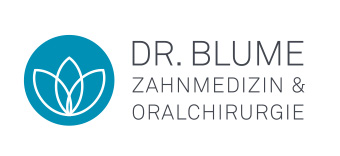Periodontology
Periodontitis is an inflammation of the gums caused by bacteria and one of the most frequently occurring diseases in Germany, one of the so-called widespread diseases. After the gum margins are affected first, the inflammation can quickly spread to the tooth bed. In addition to bleeding gums and bad breath, the consequences are tooth loss if the periodontitis remains untreated.
If, during this examination, we discover that you already have periodontitis, we will immediately start our highly effective and modern periodontal therapy. A first step, which already significantly combats the inflammation, is the thorough removal of bacterial plaque. In addition, the cleaning of gingival margins and pockets can be particularly useful in advanced periodontitis.
Regular prophylaxis appointments in your dental practice and oral surgery Dr. Blume in Mainz can save you from such complaints. Here we examine your gums specifically for the first signs of periodontitis and prevent this by professional tooth cleaning.
In the following you will find information about the course of a periodontitis treatment according to the guidelines of the German Society for Periodontology.
Initial therapy
In order to cure the disease sustainably, all measures are first taken to remove harmful bacterial deposits. Within the scope of a tooth cleaning tailored to your needs, all achievable deposits are removed from the tooth and root surfaces. For this we use very fine instruments, different ultrasonic attachments and different polishing pastes. With this gentle, non-surgical therapy, enormous success can be achieved in most cases and the initial situation can be decisively improved for further measures.
You will also learn how to handle the various cleaning instruments correctly. Effective oral hygiene at home can prevent a further outbreak of the disease.
Polishing and fluoridation of the tooth surfaces follow. Depending on the initial situation, several appointments are necessary for these measures.
In certain cases, the use of antibiotics in various forms may be indicated to kill particularly aggressive bacteria.
Measures in the initial or hygiene phase greatly reduce the amount of bacteria in the oral cavity and on the tooth and reduce periodontitis.
Control
A few weeks after the treatment, the findings are reassessed. The depth of the pockets is measured again and all anatomical structures involved in periodontitis are examined.
If the previous treatment has not been sufficient to remove the gum pockets, we will suggest further treatment steps and coordinate the further treatment with you. In some cases, hard-to-reach areas have to be cleaned under sight or structures have to be corrected.
If the check-up shows a stable result, you will be admitted to our periodontitis aftercare to avoid a new outbreak of the disease and to resolve changes early.
Corrective phase
In some cases a small surgical procedure is necessary to remove tartar and bacteria that remain in hard-to-reach gingival pockets and root forks (furcations). Also, in the case of pronounced forms of periodontitis, bony defects can occur which should be built up by regenerative procedures in order to achieve a long-term stable result.
Aftercare
The long-term success of periodontal treatment depends on your cooperation in daily oral hygiene and regular care by our practice team. During aftercare, teeth and gums are checked (e.g. measurement of gum pockets) and professionally cleaned.
The frequency of follow-up appointments depends on the severity of the disease and your individual risk of disease. In most cases, an aftercare appointment every three to six months is necessary.
Since periodontitis is usually a chronic disease, without professional aftercare there is a risk that the disease will recur and the destruction of the periodontium will continue.
Contact
DR. BLUME
ZAHNMEDIZIN & ORALCHIRURGIE
Erthalstraße 1
55118 Mainz
T (06131) 67 81 81
F (06131) 67 81 83
E-Mail: info@zahnmedizin-blume.de
OPENING TIMES
| Mon | 8am - 1pm and 2pm - 6pm |
|---|---|
| Tue | 8am - 1pm and 2pm - 6pm |
| We | 8am-1pm |
| Thu | 8am - 1pm and 2pm - 6pm |
| Fri | 8am-1pm |
PHONE HOURS
| Mon | 8:30am-12pm and 3pm-5:30pm |
|---|---|
| Tue | 8:30-12 and 3pm-5:30pm |
| Wed | 8:30am-12pm |
| Thu | 8:30am-12pm and 3pm-5:30pm |
| Fri | 8:30am-12pm |
